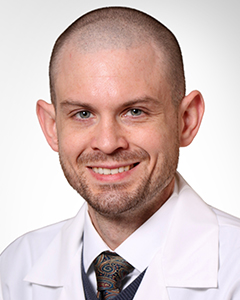How To Prevent Antibiotic Resistance – and Why That’s Important
After four or five days of feeling miserable, many patients head to their healthcare provider’s office seeking treatment. If the cause is a virus, it will take seven to 10 days to clear on its own. An antibiotic won’t help. In fact, it could promote antibiotic resistance.
Antibiotic or antimicrobial resistance occurs when the bacteria, viruses, fungi and parasites that make us sick mutate to resist medications that once were effective in killing them. As a result, researchers must keep developing new lines of attack or risk disease spread, severe illness, disability or even death.
More than 2.8 million infections occur each year in the U.S. from antibiotic-resistant bacteria, and more than 35,000 people die as a result.
The financial cost of this battle is also immense. The National Foundation for Infectious Diseases estimates antibiotic resistance adds $20 billion in excess direct healthcare costs each year in the U.S., and lost productivity through prolonged illnesses and hospital stays could be as high as $35 billion a year.
What Causes Antibiotic Resistance?
All organisms, including bacteria and fungi, undergo genetic mutations when they replicate as a part of the evolutionary process. If those germs are being treated by a drug designed to kill them, those with some resistance to the drug are more likely to survive and reproduce, passing along the resistant DNA.
Additionally, the antibiotic-resistant germs can convey the protection they’ve developed to the many other germs in our bodies that haven’t been exposed to these medicines.
Because this is a natural process, antibiotic resistance can occur any time antibiotics and antifungals are used — even when prescribed appropriately and taken as prescribed. The misuse and overuse of these medicines simply speeds the process as germs are exposed to more encounters with the medicines that kill them and therefore have more opportunities to mutate.
The World Health Organization estimates antibiotic resistance was directly responsible for 1.27 million global deaths in 2019. In the U.S., more than 2.8 million antimicrobial-resistant infections occur each year, and more than 35,000 people die as a result, according to the national Centers for Disease Control and Prevention’s 2019 AR Threats Report.
And the threat is growing. The Global Research on Antimicrobial Resistance Project estimates that antimicrobial resistance will lead to more than 39 million deaths between 2025 and 2050.
What Health Care Providers Are Doing
To avoid accelerating antibiotic resistance, healthcare providers are trained in antimicrobial stewardship, a series of practices used in both human and animal medicine to optimize the use (and avoid over-use) of antibiotics as well as anti-viral and anti-fungal medications. The goals of antimicrobial stewardship are to use the right medication at the right dose at the right time. Healthcare providers practice antimicrobial stewardship when they:
- Advise you to try over-the-counter products to relieve symptoms while your body naturally clears the virus, usually in seven to 10 days
- Call in an antibiotic prescription but urge you not to fill it for a few days to see if your symptoms clear on their own
- Test a sample (from a throat or nose swab, for example) in a lab to determine what microbes are causing illness in order to choose the narrowest spectrum drug possible
Most large healthcare facilities also keep a regularly updated antibiogram – a table listing the microorganisms and the local resistance rates of those bugs, which can vary greatly. Using this table, your healthcare provider can prescribe a medicine most likely to work specifically on that germ and avoid over-prescribing broad-spectrum drugs, preserving their use for when the infectious agent isn’t known or in cases of serious or life-threatening infections.
What You Can Do
Everyone has a role in preventing antibiotic resistance. As a patient, you can take these steps to help keep medicines safe and effective:
- Don’t ask for an antibiotic if you have (or if your health care provider suspects) a viral infection
- Take prescribed medications exactly as prescribed and complete the course, even after you begin feeling better
- Don’t take someone else’s medication or medication prescribed to you for a previous illness
- Do everything you can to avoid getting sick – washing hands, covering coughs, staying home when sick and getting recommended vaccinations
Together we can reduce antibacterial resistance and keep these miracle medicines safe and effective when we need them.
Choose to Stay in Touch
Sign up to receive the latest health news and trends, wellness & prevention tips, and much more from Orlando Health.
Sign Up





